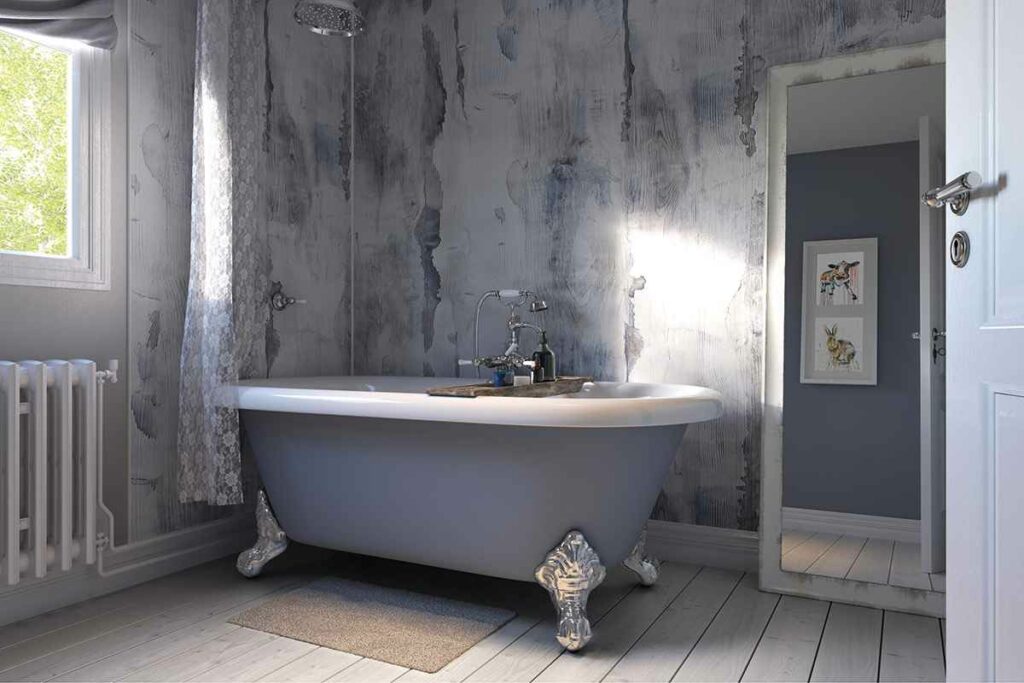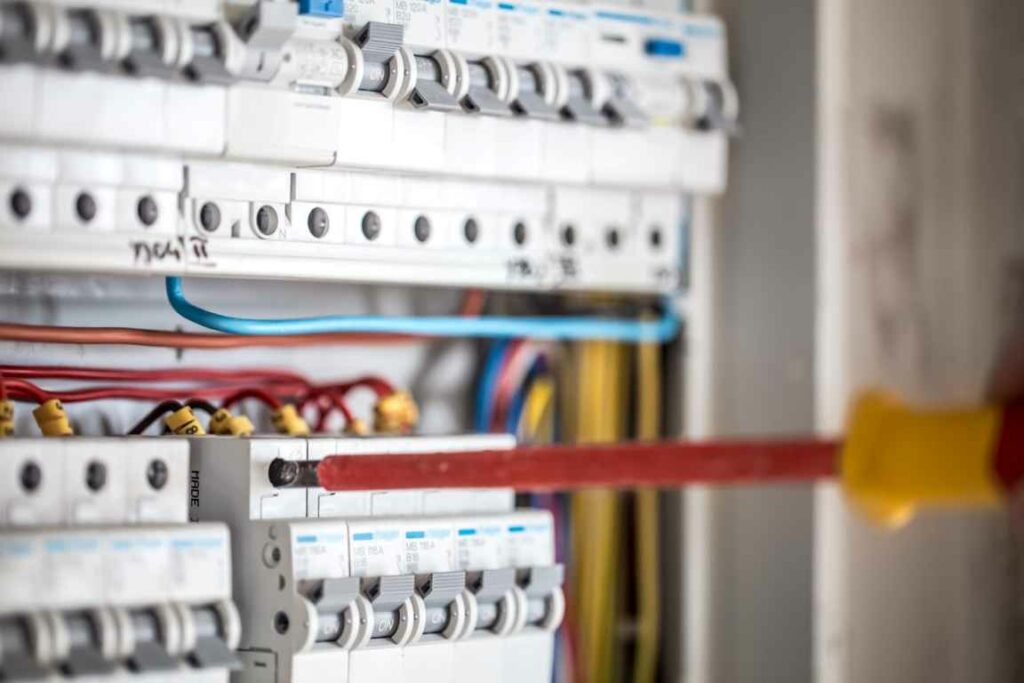An electrical panel should not be located in a bathroom, as it poses a safety hazard due to the presence of water and moisture.
The National Electrical Code (NEC) specifically prohibits the installation of electrical panels in bathrooms.
Installing an electrical panel in a bathroom can be extremely risky and should be avoided.
What Are The Potential Dangers Or Risks Associated With Installing An Electrical Panel In A Bathroom?

Installing an electrical panel in a bathroom can pose several potential dangers and risks.
According to the National Electrical Code (NEC), overcurrent devices, other than supplementary overcurrent protection, shall not be located in bathrooms.
If an electrical panel is installed in a bathroom, moisture can make its way inside and cause damage to the wiring and circuit breakers, leading to corrosion and rusting of the panel box and its hardware.
Improper grounding or bad wiring can also cause electrical shocks, burns, heart arrhythmia, nervous system damage, and even death, and can start a fire.
Therefore, it is important to ensure that the electrical panel is properly ventilated, has enough space around it, and is installed by a licensed electrician to ensure that all wiring is up to code.
Are There Any Specific Electrical Code Regulations Or Guidelines That Prohibit The Installation Of Electrical Panels In Bathrooms?
Yes, there are specific electrical code regulations that prohibit the installation of electrical panels in bathrooms.
According to the National Electrical Code (NEC), electrical breaker boxes should never be located in a bathroom.
The NEC guidelines are national standards, but it is up to local municipalities to adopt and enforce the code guidelines.
Are There Any Alternative Locations Within A House Where An Electrical Panel Can Be Safely Installed?
Yes, there are alternative locations within a house where an electrical panel can be safely installed.
The garage, basement, hallways, entryways, utility rooms, and storage rooms are often the best locations for an electrical panel as they are accessible, reachable, and safe.
However, there are certain locations where electrical panels are prohibited, such as in bathrooms, over steps, and in clothing closets.
It is important to follow building codes and guidelines to ensure the safety and accessibility of the electrical panel.
Can Certain Safety Measures Or Modifications Be Taken To Make It Possible To Install An Electrical Panel In A Bathroom?
It is not possible to install an electrical panel in a bathroom.
Electrical conductors, equipment, and light fixtures must be identified for use in the operating environment in which they will be installed, and all electrical panels must be located in a dry location.
While there are some tips for electrical safety in the bathroom, such as using recessed or enclosed lights and pulling strings for lights instead of switches, it is not recommended to install an electrical panel in a bathroom.
What Are The Potential Consequences Or Legal Implications Of Installing An Electrical Panel In A Bathroom Despite The Safety Regulations?
Installing an electrical panel in a bathroom despite safety regulations can have potential consequences and legal implications.
The moisture in the bathroom can cause damage to the wiring and circuit breakers, leading to corrosion and rusting of the panel box and its hardware, including hinges and screws, which can impede access to the panel.
The National Electrical Code (NEC) prohibits the installation of overcurrent devices, other than supplementary overcurrent protection, in bathrooms in dwelling units, dormitories, and guest rooms or guest suites.
Any panel installed in a bathroom before the 1993 edition of the NEC took effect in the area does not have to be moved, but it will need to be relocated when it is replaced as part of any service upgrade.
Experts do not recommend putting the electrical panel in the bathroom, as it is mostly wet.







